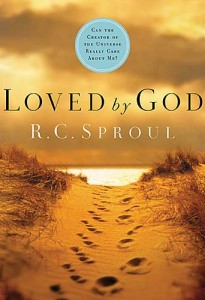 An excerpt from Dr. R. C. Sproul’s book, Loved by God.
An excerpt from Dr. R. C. Sproul’s book, Loved by God.
When Genesis speaks of a beginning, it is referring to the advent of the universe in time and space. It is not positing a beginning to God but rather to the beginning of the creative work of God. One of the most enigmatic questions of philosophy and theology relates to the nature of time. Was the universe created in time, or was it created along with time? Did time exist before creation, or did it come into being with creation? Most classical theologians affirm that time correlates with creation. That is, before matter was created, time, at least as we know it, did not exist. How one approaches this question of the origin of time is usually bound up with how one understands the nature of time. Some see time not as an objective reality but merely as a category or construction of the mind.
However we conceive of time, we will agree that the ordinary manner by which we measure time requires a relationship between matter and motion. A simple clock uses hands that move around the face of a dial. We measure time by the motion of these hands. Or we may use an hourglass, which measures the passing of sand through a narrow aperture in the glass. The sundial measures time by the movement of a shadow. There are many devices to measure time, but in the final analysis they all rely on some sort of motion relative to some type of matter.
If there is no matter, we cannot measure motion. If we cannot measure motion, we cannot measure time. However, just because we cannot measure time without matter does not mean that without matter time does not exist. Genesis merely asserts that the universe had a beginning. It does not explicitly declare that time began with the universe. That concept is derived via speculative philosophy. The philosophical concerns are usually linked to our broader understanding of the nature of God. Especially when we declare with Scripture that God is eternal, the question of His relationship to time arises. Does His eternality mean that He is somehow outside of time, that He is timeless? Or does His eternality mean that He exists in an endless dimension of time?
However we answer this question, we conclude that God Himself never had a beginning. He exists infinitely with respect to space and eternally with respect to time. His existence has neither a starting point nor an ending point. The dimensions of His existence are from everlasting to everlasting. This means that He always has been and always will be.
In the Beginning God
Though God Himself had no beginning, nevertheless He was already there in the beginning. He antedates the created order. When we affirm that God is eternal, we are also saying that He possesses the attribute of aseity, or self-existence. This means that God eternally has existed of Himself and in Himself. He is not a contingent being. He did not derive from some other source. He is not dependent on any power outside Himself in order to exist. He has no father or mother. He is not an effect of some antecedent cause. In a word, He is not a creature. No creature has the power of being in and of itself. All creatures are contingent, derived and dependent. This is the essence of their creatureliness.
In the Beginning God Created
Thinkers hostile to theism have sought every means imaginable to provide a rational alternative to the notion of an eternal self-existent deity. Some have argued for an eternal universe, though with great difficulty. Usually the temporal beginning of the universe is granted but with a reluctance to assign its cause to a self-existent, eternal being. The usual alternative is some sort of self-creation, which, in whatever form it takes, retreats into irrationality and absurdity. To assert the self-creation of anything is to leap into the abyss of the absurd because for something to create itself, it would have to exist before it existed to do the job. It would have to be and not be at the same time and in the same relationship. Some speak of self-creation in terms of spontaneous generation, which is just another name for self-creation. This would involve the logically impossible event of something coming from nothing. If there ever was a time when absolutely nothing existed, all there could possibly be now is nothing. Even that statement is problematic because there can never be nothing; if nothing ever was, then it would be something and not nothing.
Understanding the eternality of God is important because without some understanding of this attribute, our understanding of the love of God will be impoverished. This is so because the love of God must be understood as an eternal love. Just as He is from everlasting to everlasting, so His love is also from everlasting to everlasting. His is not a fickle love that waxes hot and cold over time. His love has a constancy about it that transcends all human forms of love. Just as human beings often fall in love, they also often fall out of love. This is not the case with the love of God.
If God’s love is eternal, we must ask whom or what did God love from all eternity? What was the object of that love? In the first instance we see that God’s eternal love had Himself as both the subject and object of His love. As the subject, God did the loving. Yet at the same time He was the object of His own love. Though this love was a kind of self-love, it was by no means a selfish love.
 “Surely one of the most difficult things for us to understand about God is His eternal nature. We are limited to time. We experience reality as a series of events- past, present and future. Our language is based upon our experience of time. We have past tenses, and present tenses, and future tenses. We think in a temporal, time-based way.
“Surely one of the most difficult things for us to understand about God is His eternal nature. We are limited to time. We experience reality as a series of events- past, present and future. Our language is based upon our experience of time. We have past tenses, and present tenses, and future tenses. We think in a temporal, time-based way.
 An excerpt from Dr. R. C. Sproul’s book, Loved by God.
An excerpt from Dr. R. C. Sproul’s book, Loved by God.